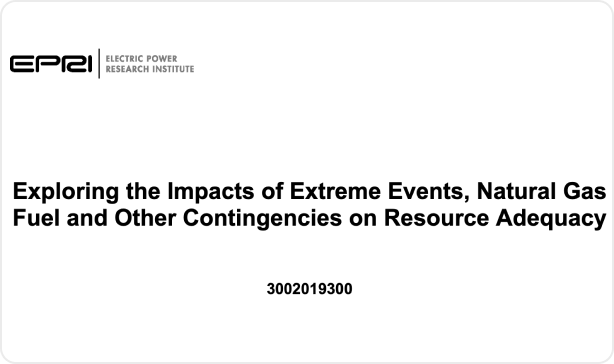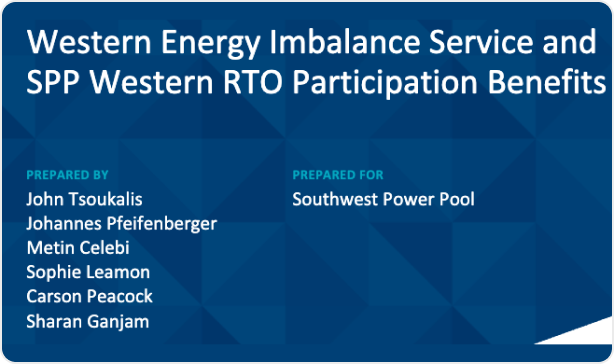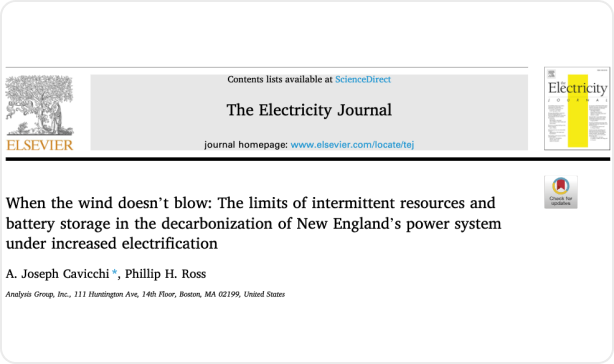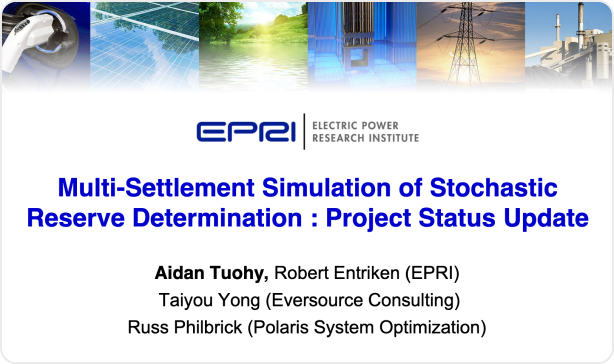Customer Stories
Market Design and Policy Analysis
Studies performed prior to May 2016 refer to ENELYTIX® as pCloudAnalytics.

Analyzing the Impacts of Extreme Events and Natural Gas on Resource Adequacy
TCR, sponsored by EPRI, authored a white paper on resource adequacy planning methods. The study revealed the electric industry’s tendency to underestimate the probability and severity of high-impact common mode failure events. This suggests a need for evolving traditional approaches to ensure resource adequacy. The paper offers strategies for utilities and ISO/RTOs based on their unique circumstances. ENELYTIX® analyzed weather’s impact on gas-electric system interactions to support the study’s conclusions.

Western Energy Imbalance Service and SPP Western RTO Participation Benefits
The Brattle Group used ENELYTIX® to estimate the production cost benefits that would likely result from the creation of the WEIS Market and from extending the full Southwest Power Pool (SPP) Regional Transmission Organization (RTO) market to include the WEIS footprint. A single unified model of WECC and most of the EIC was modeled and the study showed a 0.3% reduction in Adjusted Production Costs.

When the Wind Doesn’t Blow
Increased electrification of transportation and residential heating, alongside expanding intermittent wind and solar resources, is crucial for New England states to meet greenhouse gas reduction targets. Analysis Group Inc. utilized ENELYTIX® to study large-scale battery storage’s potential to shift generation from production to demand during multi-day periods. The study concluded that firm generation or technological breakthroughs are necessary to meet demand in these periods.

Carbon Pricing for New England
Analysis Group Inc. used ENELYTIX® to study the impact of increased electrification on the New England generation mixture, energy prices and regional CO2 emissions. The study, performed on behalf of the New England Power Generators Association (NEGPA), focused on developing a pathway for states to meet GHG requirements through a carbon pricing framework.

Multi-Settlement Simulation of Stochastic Reserve Determination
EPRI, with support from CAISO, studied reserve procurement policies in WECC. ENELYTIX® simulated stochastic reserve procurement to anticipate dynamic system conditions like wind ramping and uncertain load production. Using a full WECC model with 2,000 generators, 46 zones, and 27 regions, a two-day rolling horizon stochastic simulation with 626 commitment and dispatch runs was completed in under 1 hour. This study suggested that dynamic procurement of load-following reserves could improve overall efficiency in WECC.

Gas-Electric Co-Optimization (GECO)
The research team led by Newton Energy Group uses ENELYTIX® to study the co-optimization and coordination of natural gas and electric networks as a part of a two-year project sponsored by ARPA-E.